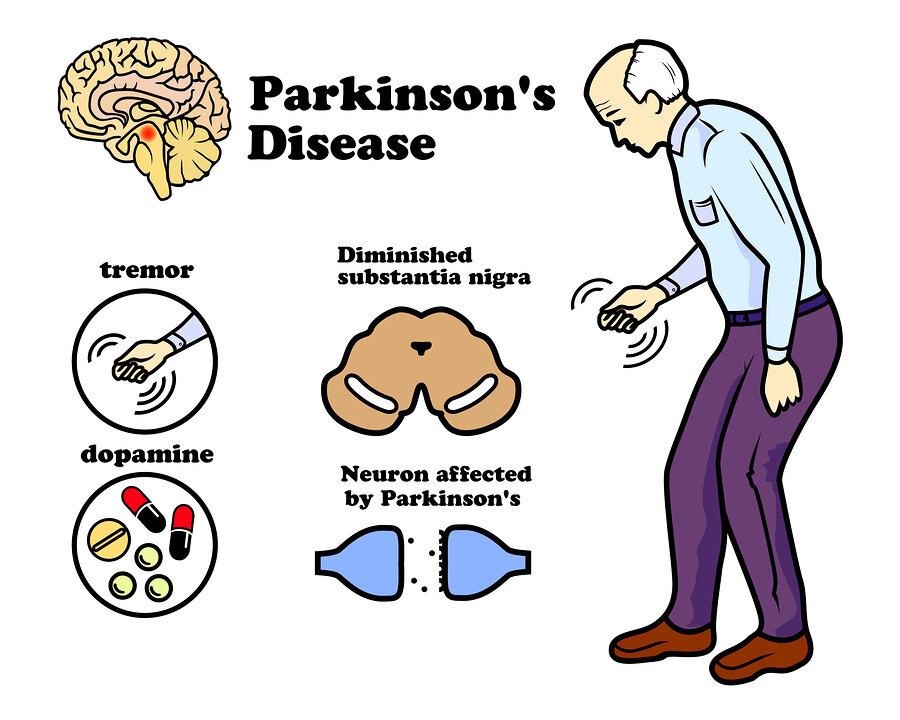- Empty cart.
- Continue Shopping
The Role of Diet in Parkinson’s Prevention

As we seek to maintain our health and well-being, it is essential to consider the impact of our diet on various aspects of our physical and mental health. In recent years, there has been growing interest in the relationship between diet and neurodegenerative diseases, such as Parkinson’s.
Understanding Parkinson’s Disease
1. Neurodegeneration and Dopamine Deficiency
Parkinson’s disease is characterized by the progressive degeneration of dopamine-producing neurons in the brain. This leads to a decrease in dopamine levels, resulting in a range of motor and non-motor symptoms, including tremors, rigidity, and cognitive impairment.
2. The Need for Neuroprotective Measures
While there is no definitive cure for Parkinson’s, research suggests that certain lifestyle factors, including diet, can contribute to the prevention or delay of its onset.
Key Nutrients for Parkinson’s Prevention
1. Antioxidants: Nature’s Defense
Antioxidants play a crucial role in protecting cells from oxidative stress, a process linked to neurodegeneration. Vitamins C and E, found in fruits, vegetables, and nuts, are potent antioxidants that can help safeguard neurons from damage.
2. Omega-3 Fatty Acids: Brain Boosters
Omega-3 fatty acids, commonly found in fatty fish like salmon and flaxseeds, have anti-inflammatory properties that may contribute to a healthier brain environment. Research suggests they may help reduce the risk of neurodegenerative conditions.
3. Polyphenols: The Power of Plants
These plant compounds, abundant in foods like berries, green tea, and dark chocolate, have been associated with various health benefits, including potential neuroprotective effects. They exhibit anti-inflammatory and antioxidant properties that can support brain health.
The Mediterranean Diet: A Blueprint for Brain Health
1. Embracing Whole Foods
The Mediterranean diet places emphasis on whole, minimally processed foods such as fruits, vegetables, whole grains, nuts, and legumes. These foods provide a rich array of essential nutrients that support overall health, including brain function.
2. Healthy Fats for a Healthy Brain
Olive oil, a cornerstone of the Mediterranean diet, is rich in monounsaturated fats and antioxidants. These components not only support cardiovascular health but also contribute to a brain-protective environment.
3. Moderate Protein and Dairy Intake
The Mediterranean diet includes moderate amounts of lean proteins like fish, poultry, and legumes, as well as moderate dairy consumption. These provide essential amino acids and vitamins necessary for optimal brain function.
The Gut-Brain Connection
1. Fiber and Gut Health
A diet rich in fiber from fruits, vegetables, and whole grains supports a healthy gut microbiome. Emerging research suggests that gut health may play a role in neurodegenerative diseases, highlighting the importance of a balanced diet.
2. Probiotics and Fermented Foods
Foods like yogurt, kefir, and kimchi are rich sources of probiotics, beneficial bacteria that promote a healthy gut. Maintaining a diverse and balanced gut microbiome may contribute to overall well-being, including brain health.
In conclusion, as we strive for optimal health, understanding the profound impact of diet on the prevention of neurodegenerative diseases like Parkinson’s is of paramount importance. By embracing nutrient-dense, whole foods and adopting dietary patterns such as the Mediterranean diet, we can provide our bodies and minds with the essential building blocks for a vibrant, thriving life. Remember, the journey towards prevention begins on your plate, so nourish yourself wisely and invest in a future of well-being and vitality.








